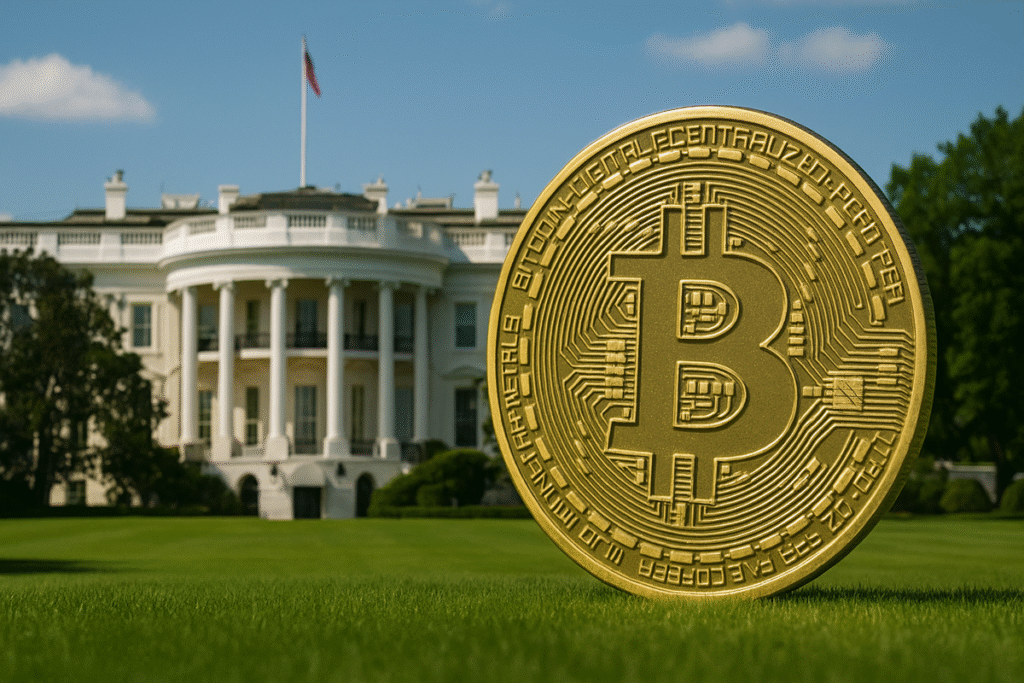In a world where digital currencies are increasingly shaping our economic landscapes, understanding the strategic maneuvers of governments is crucial. The United States’ recent developments in its digital asset policy, specifically concerning its Strategic Bitcoin Reserve (SBR), highlight the growing significance of cryptocurrencies in national and global strategies. This detailed examination delves into the U.S. government’s approach, its implications for the cryptocurrency market, and what it means for the future of economic growth and digital innovation.
Strategic Bitcoin Reserve: U.S. Government’s Crypto Strategy Unveiled
Decoding the Bitcoin Accumulation Strategy
Patrick Witt, who holds key positions within the White House and the Pentagon, recently shed light on the U.S.’s strategic direction regarding Bitcoin. Speaking at the Bitcoin Policy Summit, Witt affirmed Washington’s commitment to shaping its interagency approach toward the SBR, indicating a significant step beyond theoretical discussions. According to Witt, the administration has already initiated steps towards implementing the accumulation plan, emphasizing the role of Bitcoin and digital assets in fueling economic expansion.
Witt’s remarks underscore the ambition to position the United States as the global hub for cryptocurrency innovation and mining. In his vision, Bitcoin is not only a financial asset but also a critical component of modern statecraft, akin to the post-World War II dominance of the U.S. dollar. Witt articulated a pressing need for the U.S. to define this new financial architecture actively, warning against the risks of ceding influence in this rapidly evolving domain.
The Geopolitical Implications of Bitcoin
Witt highlighted the geopolitical advantages of Bitcoin’s borderless nature, which can drive financial inclusion for billions who remain unbanked or under oppressive regimes. This aspect opens new avenues for U.S. capital and reinforces the global appeal of dollar-backed assets. The initiative also aligns with maintaining the nation’s technological edge by advancing domestic energy and compute infrastructure, potentially funded by the Pentagon’s Office of Strategic Capital (OSC).
The Role of Strategic Capital in Crypto Development
The OSC, with its considerable funding capabilities, could channel resources into enhancing bitcoin-related energy and computing infrastructures. Witt’s remarks encourage miners and tech firms to view OSC as a favorable financial partner, emphasizing domestic, secure, and abundant resource development.
Navigating Legislative Challenges and Industry Collaboration
Witt acknowledged the complexities of embedding Bitcoin into national policy, citing legislative hurdles that require strategic industry partnerships. By positioning industry actors as reliable partners, the path to implementing Bitcoin-centric policies could be expedited. The collaborative approach is essential, given the limited digital asset expertise within governmental staff.
Inside the Policy-Making Process
The forthcoming inter-agency report, a pivotal document in formalizing the Bitcoin accumulation plan, reflects comprehensive input from various governmental bodies, including the Treasury and the National Security Council. This report is anticipated to guide future appropriations and policy implementations, underscoring a commitment to detailed, actionable frameworks.
Understanding the Implications for Investors
These developments signal an evolution in how digital assets are perceived at the federal level, with significant implications for investors and market participants. The institutional momentum reflected in Witt’s statements marks a definitive shift toward integrating Bitcoin into the broader economic strategy, offering new opportunities and considerations for stakeholders in the cryptocurrency market.
Frequently Asked Questions
Why is the U.S. government interested in accumulating Bitcoin?
The U.S. government views Bitcoin as a strategic asset that can drive economic growth, enhance financial inclusion, and solidify its position in the global digital currency landscape. By actively participating in Bitcoin’s infrastructure and market dynamics, the U.S. aims to influence the emerging monetary systems and ensure national economic security.
What role does the Office of Strategic Capital play in the Bitcoin strategy?
The Pentagon’s Office of Strategic Capital plays a crucial role in financing infrastructure developments related to Bitcoin. By supporting domestic energy and compute initiatives, OSC ensures that the U.S. maintains a competitive edge in the digital currency ecosystem, fostering secure and abundant resource development.
How might these developments affect the future of cryptocurrencies?
The U.S. government’s strategic accumulation of Bitcoin and investment in related infrastructures could reinforce the legitimacy and stability of cryptocurrencies. This move may encourage further innovation and adoption of digital assets, transforming them into integral components of the global financial system.
What challenges does the Bitcoin accumulation strategy face?
The primary challenges include navigating legislative complexities and securing industry collaboration to facilitate policy implementation. The limited digital asset expertise within governmental staff underscores the need for robust partnerships with industry leaders and researchers to drive effective policy-making.

